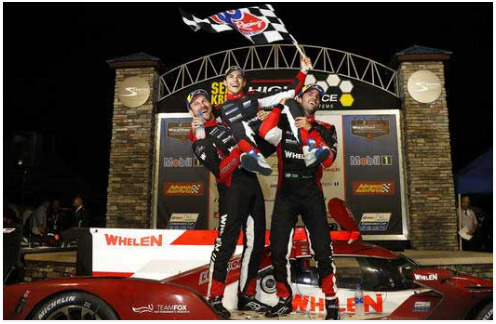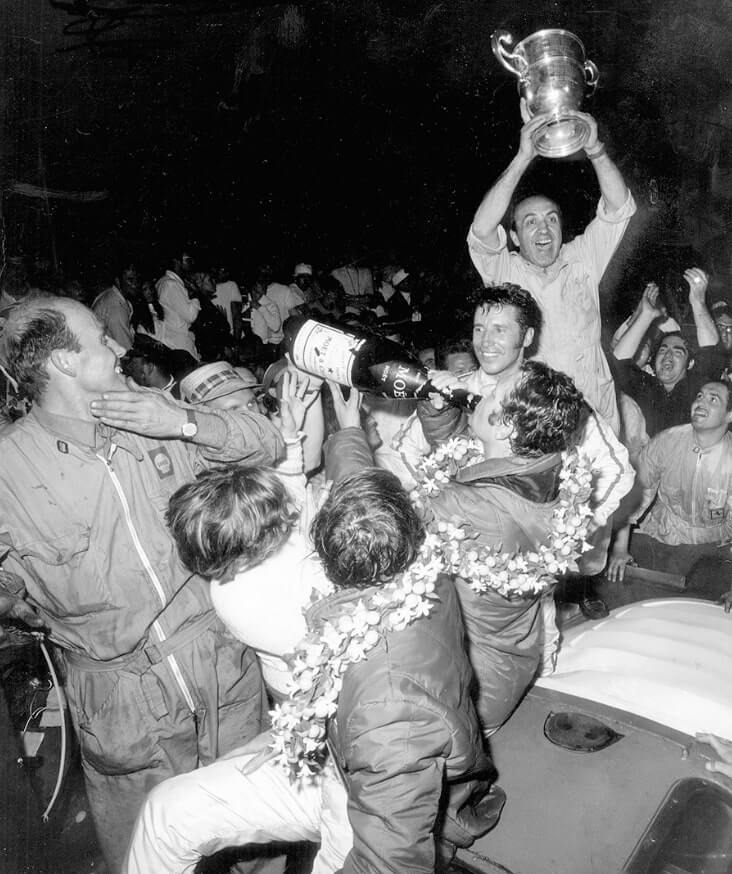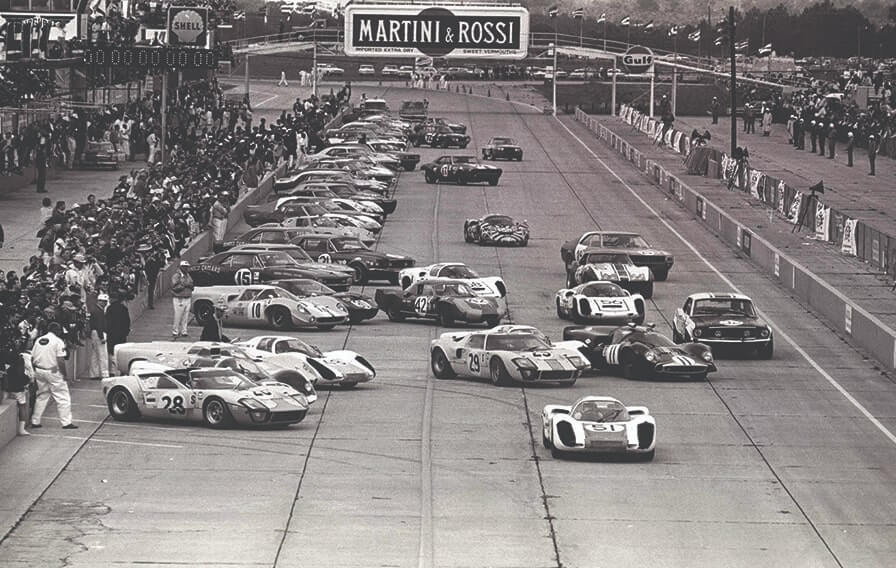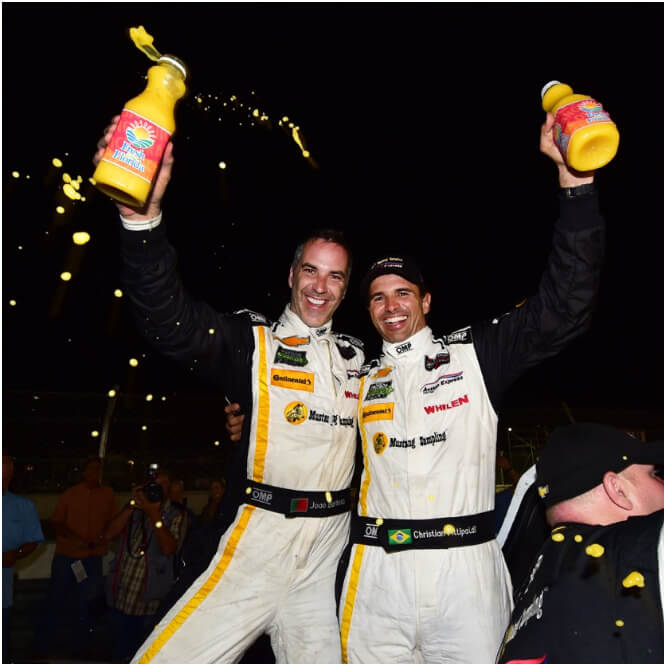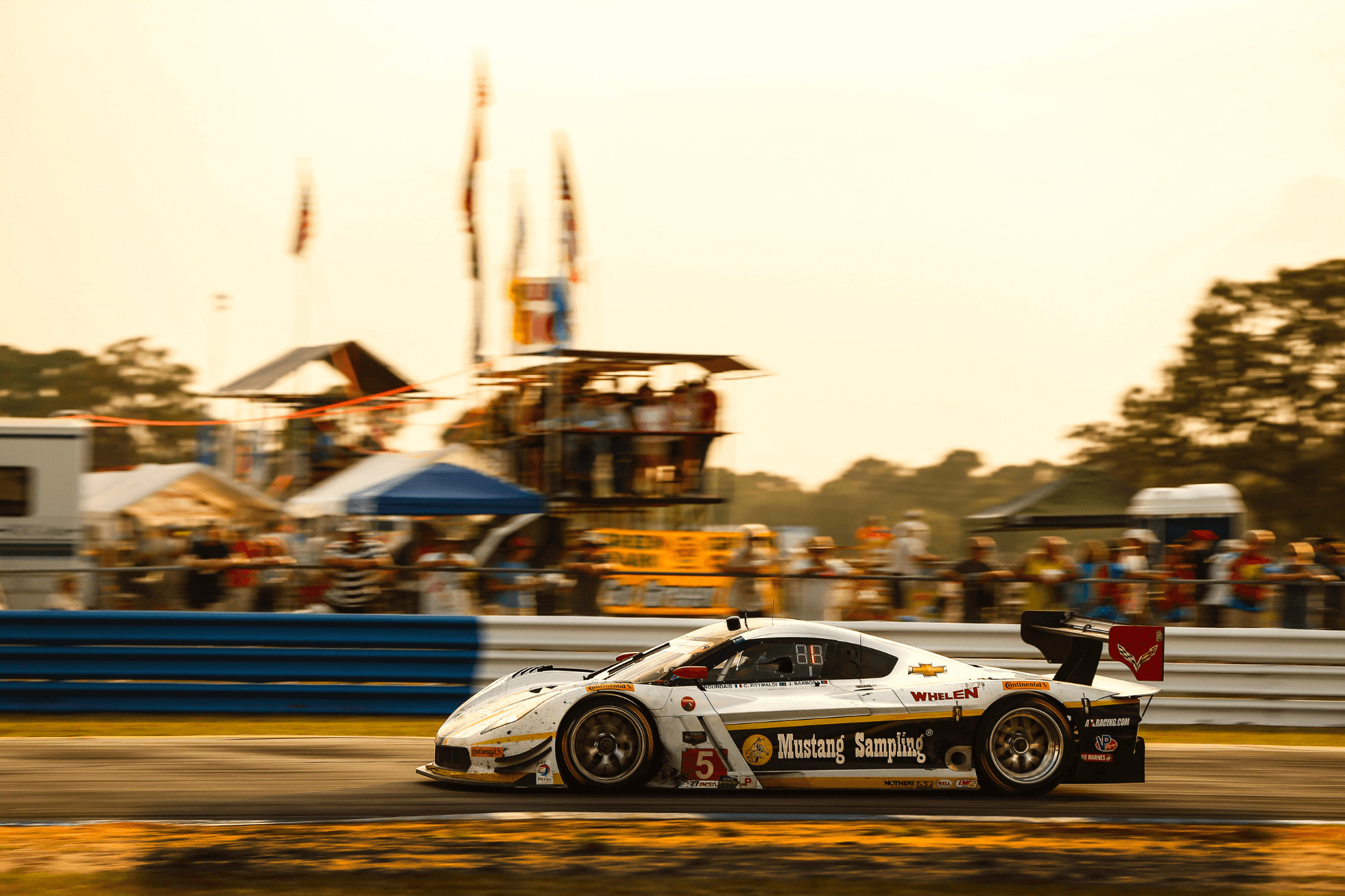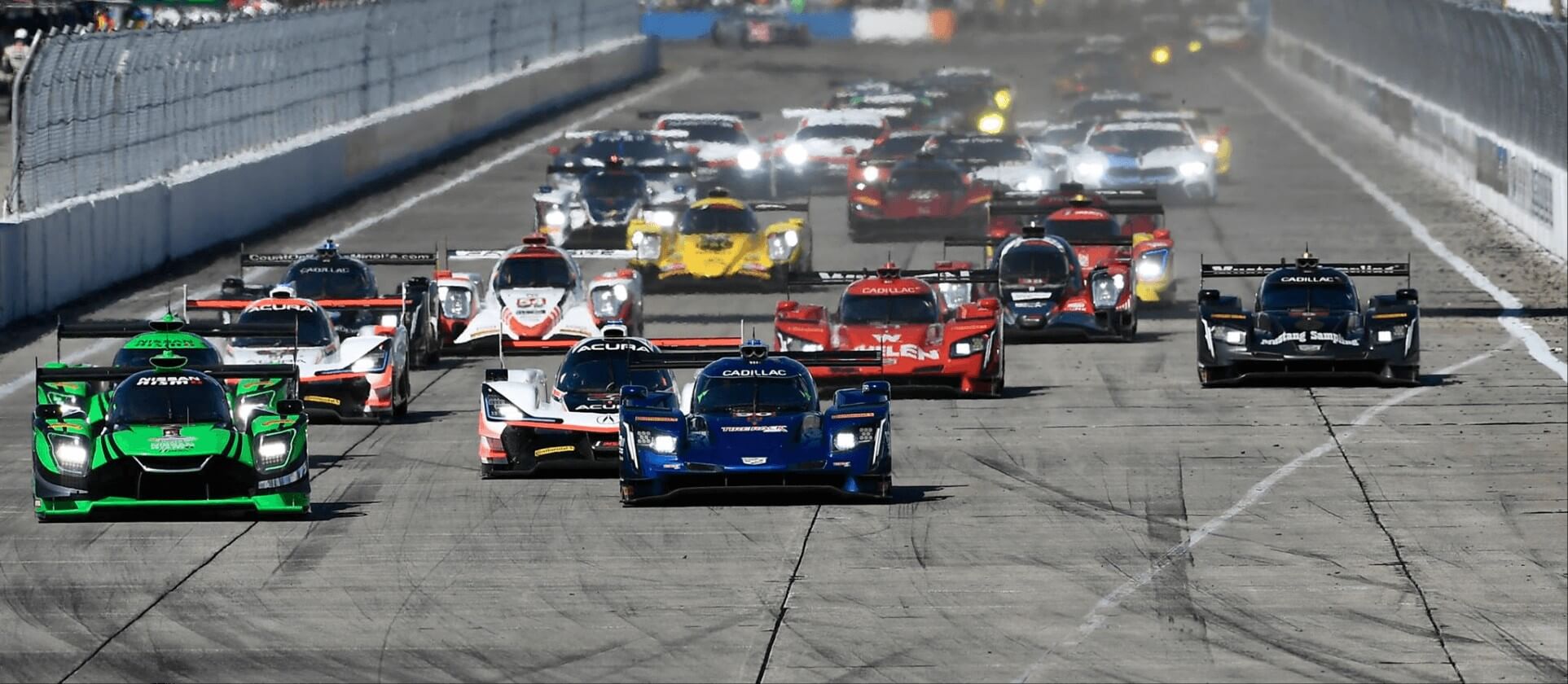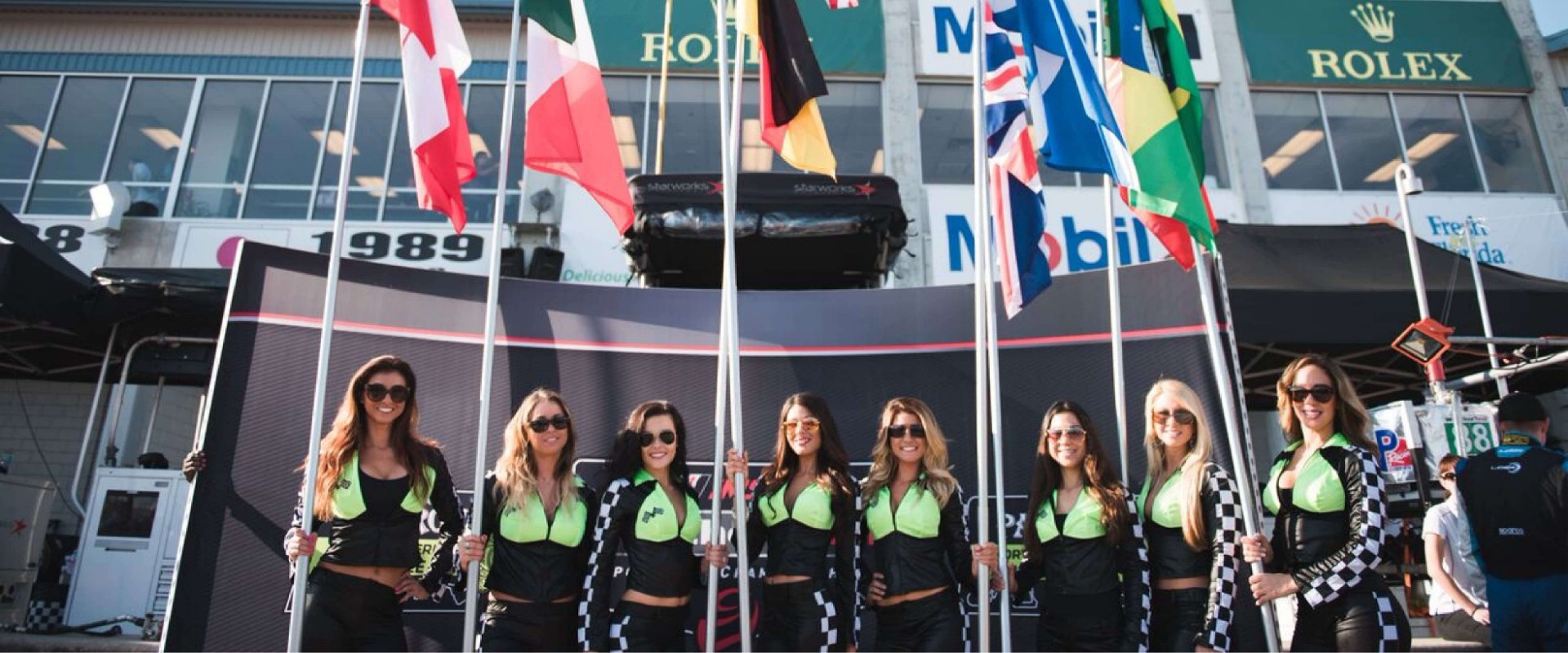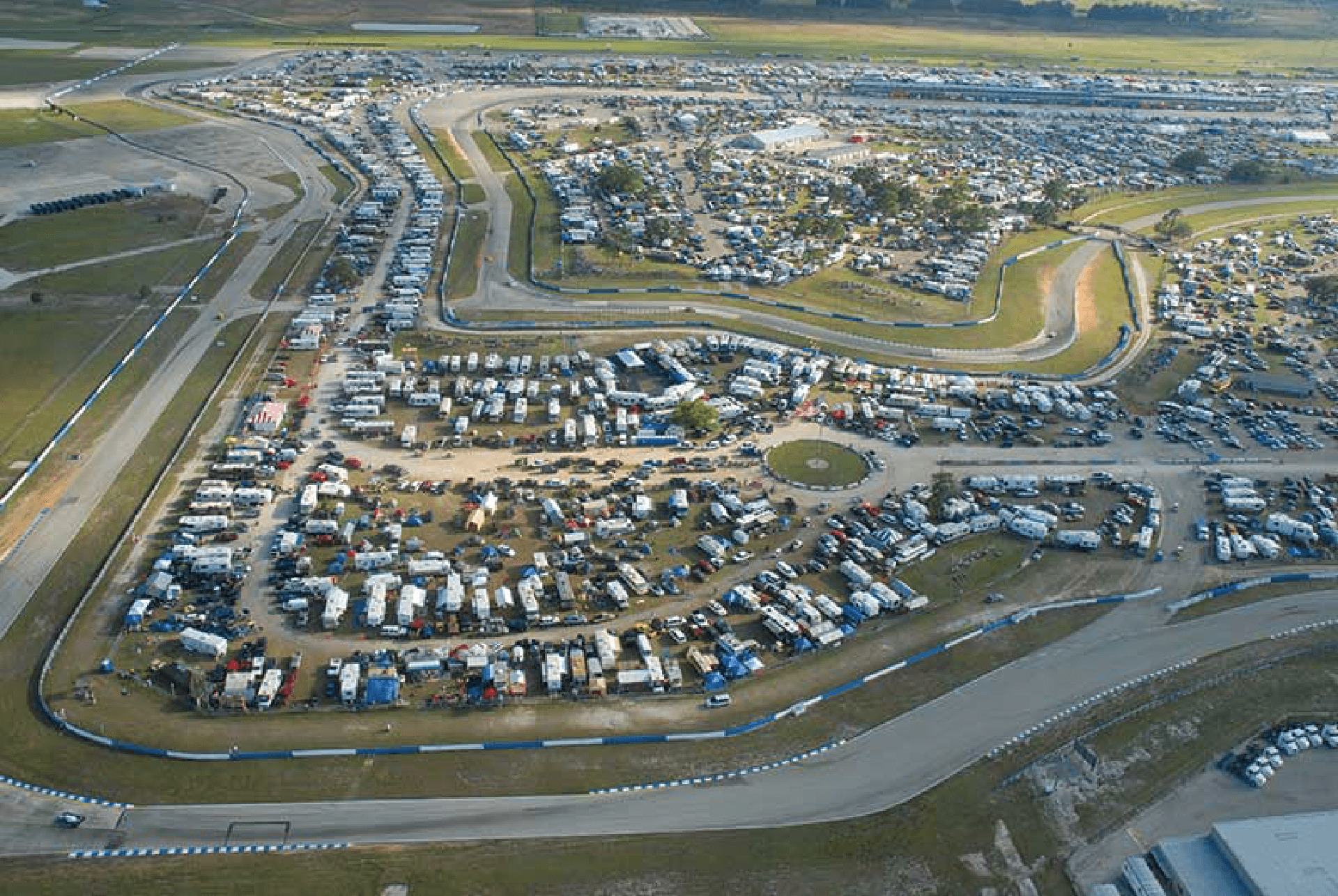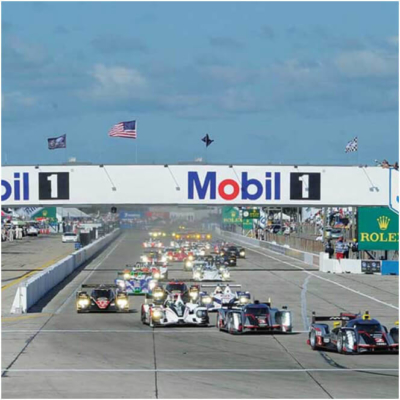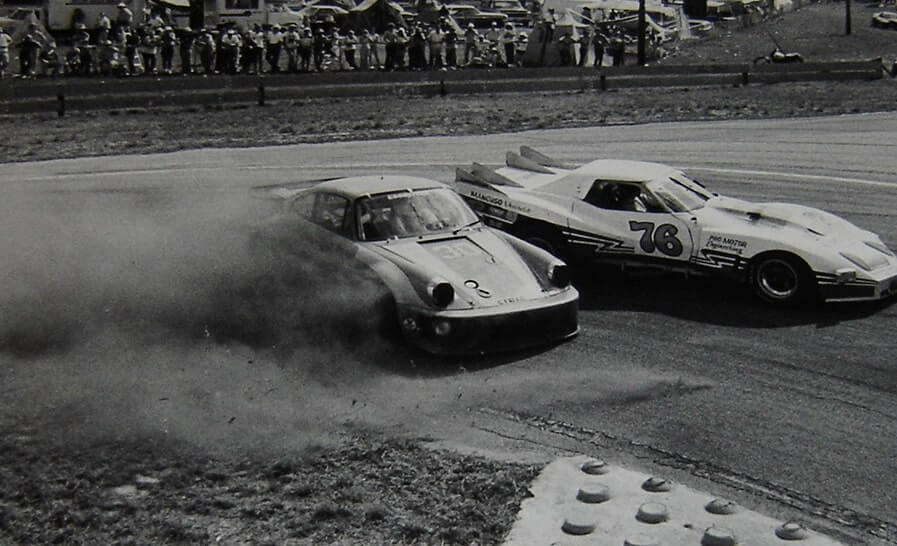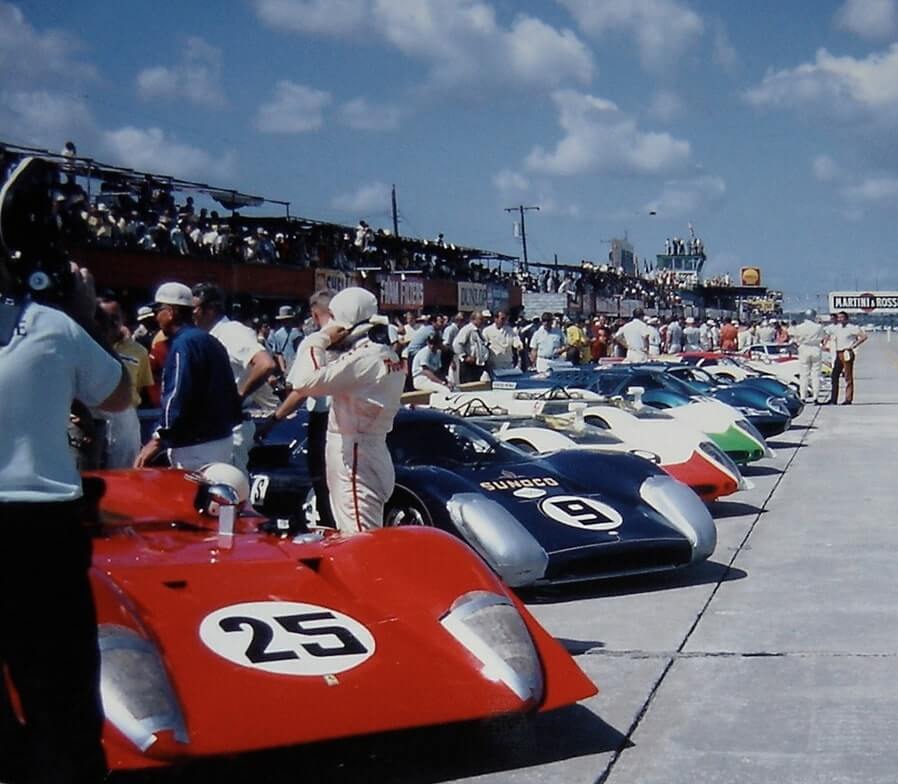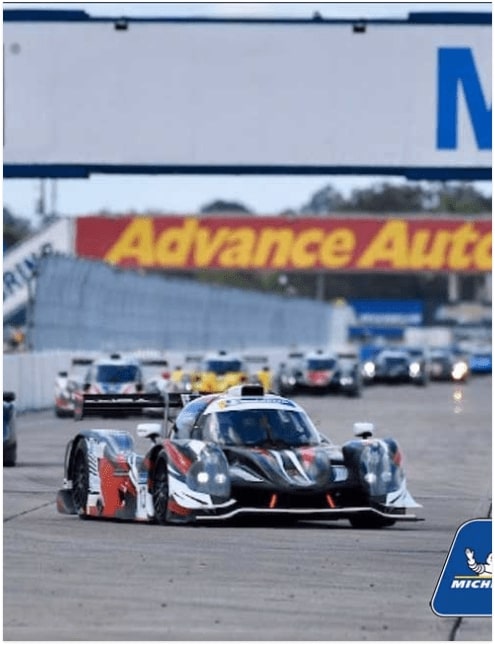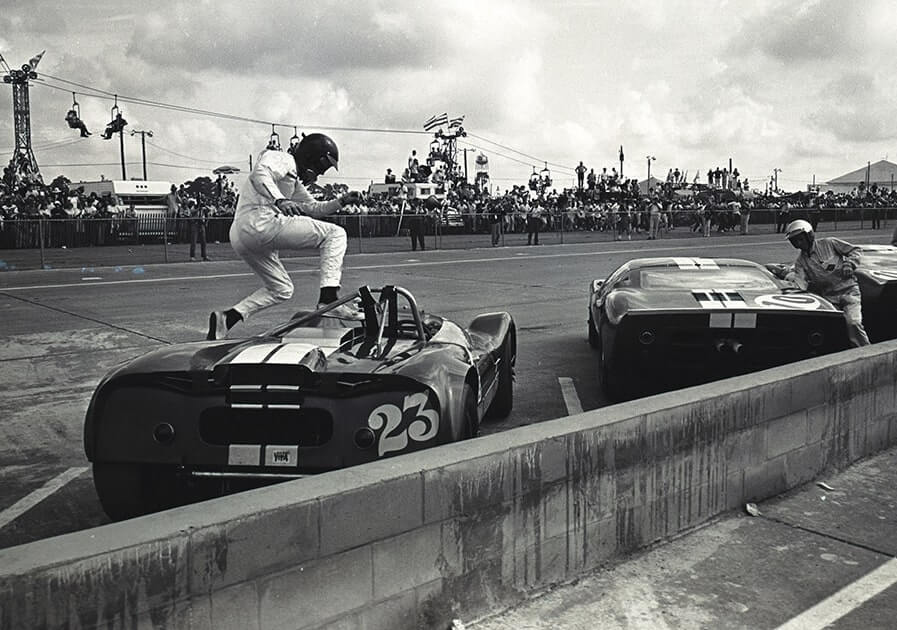History
Chronological History of Sebring International Raceway
Sebring International Raceway holds a rich history that dates all the way back to New Year’s Eve of 1950—and its legacy has been evident in every race ever since. Visitors, whether they’re familiar with the raceway or experiencing the excitement for the first time, can sense the traditions that have been carried through nearly seven decades of competition from start to finish—and we’re not just talking about the race itself.
What started as Hendricks Army Airfield, a World War II base used to train B-17 combat crews, has now become the home to one of the most prestigious 12-hour endurance races known internationally, second to Le Mans. Thanks to aviation and racing enthusiast Alec Ulmann, this was made possible after he improvised the war base runways as a raceway track to host the first six-hour endurance race. It wasn’t until this pivotal moment that Sebring then marked its first 12-Hour Endurance Race just two years later and is now known as the most famous racetrack in the nation.
Sebring Urban Legends: Fact or Fiction?
Fiction
We have no evidence this ever happened. Remember, we are talking about a child being born in Green Park, not conceived. However, children were born at this location when it was a military base.
Fact
In 1950, Sebring promoter Alec Ulmann took Gov. Fuller Warren on a lap around the track while the race was in progress!
Fact
By all accounts, Morrison attended the 1962 and/or 1963 race. Remember, he was born in Melbourne, Florida and attended St Petersburg Junior College and Florida State University.
Fiction
Alligators have made their way on to the track at Sebring, but not during the race.
Fact
Christopher Wilder, later to be discovered as the “Beauty Queen” serial killer, drove in the 1983 race. He was killed by police the following year trying to cross the border into Canada.
Fact
Earnhardt and his son Dale Jr. tested with the Corvette team in December 2000.
Fact
Yes, Alec Ulmann officially announced this but it never happened, in part due to heavy rains that flooded the new track near West Palm Beach a few months before the race. Ulmann considered moving the race to Fort Lauderdale in 1957.
Fact
Portions of the 1975 movie “The Great Waldo Pepper” were filmed at the Sebring Airport and Raceway
Fact
The sanctioning organization changed the race name to the “Sebring-Camel 1200 km” instead of “The 12 Hours of Sebring.” However, the race was never held.
Fact
The famous journalist drove a Lancia in the 1959 Sebring 12 Hours. On his first practice lap three days before the race, he witnessed a fatal accident when Edwin Lawrence crashed his Maserati at the Hairpin. Lawrence’s family comes to the 12 Hours race every year, camps at the track and holds a private memorial service.
Fact
Six drivers of reserve entries, unhappy they were not allowed to start, decided to go on the track at the start, they all did one or two laps and then got off the track.
Fact
A Ford GT driven by Bob McLean, in which he was killed during a fiery accident approaching the hairpin in 1966, was buried at nearby property. There was very little left of the car. The remains of an Alfa Romeo also are buried near the circuit. We’re not telling where.
Fact
Yes, they all did except Garner, who was a car owner in the 1960s and attended Sebring regularly but never drove in the race.
Fact
Legendary photo-journalist Bernard Cahier handed Moss the Coke at the Hairpin, and on the next lap Moss tossed the empty bottle!
Fiction
He attended the race in 1980, but he never drove in the race.
Fact
The Memphis Belle landed at Hendricks Field as part of a War Bond drive and morale booster for the crews training in Sebring.
Fiction
Never happened. Nor did they find Jimmy Hoffa.
Fact
Victor Sharpe of Tampa drove his Crosley Hot Shot to the Sam Collier 6-hour Memorial race in 1950. He was convinced to loan his car to drivers Ralph Deshon and Fritz Koster. They ended up winning the race, which was run on a handicap formula.
Fiction
For some reason this is one of the most common myths about Sebring. The race was NEVER a 24-hour race.
Fact
The actual number of fans who showed up that year is uncertain, estimated somewhere between 2,000 and 5,000.
Fact
While towing the car back from Sebring, the team stopped near Ormond Beach, where it was stolen (most of it was eventually recovered).
Fact
The earliest arrival was by Patrick Taylor of Palm Bay, Florida, who arrived on December 26th 2003, nearly three months before the race.
Fact
Sadly true. His real name was Thomas Kummer, but he chose Jay “Sebring” because he liked the name of the famous Florida sports car race.
Sebring Raceway: Fast Facts
- The 3.74-mile racing circuit is on what was originally Hendricks Field, a United States Army Air Forces base which served during World War II as a Heavy Bomber Training School for B-17 Flying Fortress and B-24 Liberator pilots.
- In 1959, Franklin D. Roosevelt Jr., son of the late president, entered a team of three Fiat Abarths.
- In 2019, a USA Today reader poll named the Mobil 1 12 Hours of Sebring North America’s number one race. This race was attended by spectators from 48 states and more than 10 foreign countries, contributing to Sebring’s status as one of the most fan-friendly circuits in the world. All tickets allow access to all non-hospitality areas on the property and both the IMSA and FIA WEC competitor paddocks are open to all spectators.
- The surface of Sebring’s front straight is the original concrete poured in 1941 for the Hendricks Field military base.
- Sebring International Raceway is North America’s oldest permanent road racing facility, established in 1950.
- Sebring International Raceway is one of the busiest motorsports facilities in North America, active more than 300 days a year with private testing, clubs, corporate events, driving schools and other special events.
- Nestled among the orange groves and cattle ranches of Central Florida, Sebring International Raceway has hosted the legendary 12-hour endurance classic since 1952, now part of the prestigious IMSA WeatherTech SportsCar Championship.
- Its unique shape puts a new definition to the shape of racetracks. Unlike your average oval-shaped course, this track is 3.7 miles long with a total of 17 turns to challenge even the most experienced drivers. As one of the busiest motorsports facilities in North America, this unrivaled racetrack is active more than 300 days a year.
- Sebring was the site of the first ever FIA World Championship Sports Car Race in 1953, and in 2012 hosted the inaugural race of the FIA WEC, which returned in 2019 to run the day before the Mobil 1 Twelve Hours of Sebring Presented by Advance Auto Parts.
- Sebring International Raceway is the birthplace of American endurance racing and North America’s oldest permanent road racing facility, established in 1950. The Florida raceway is known as one of the most versatile testing facilities in the motorsports industry, offering a variety of circuit configurations for club and corporate events, private testing, and racing schools.
- Hendricks Field was named in honor of First Lieutenant Laird Woodruff Hendricks, Jr. A native Floridian, Hendricks was born in Ocala, Fla., grew up in Jacksonville, Fla. and graduated from the United States Military Academy at West Point, N.Y. in 1939. Hendricks completed flight training and received his aeronautical rating as an Army pilot. Lieutenant Hendricks was killed in a B-17C (RAF Fortress I) crash near RAF Polebrook, England on July 28, 1941, three days after he arrived there to train Royal Air Force pilots.
- Sebring is known as one of the most versatile testing facilities in the motorsports industry offering a variety of circuit configurations for club and corporate events, private testing, and racing schools.
Sebring Raceway Gallery
From the asphalt to the stands, Sebring International Raceway is a race enthusiast’s paradise. This world-class track stands out from the pack for its fan-friendly build and premier amenities. We invite you to become part of this legacy.
